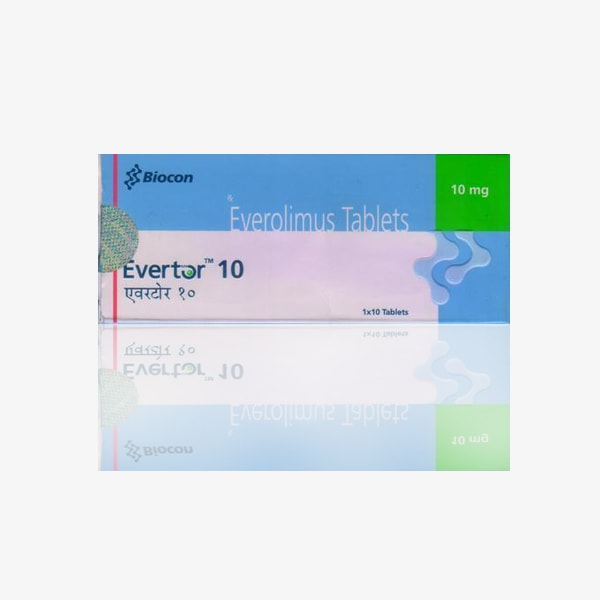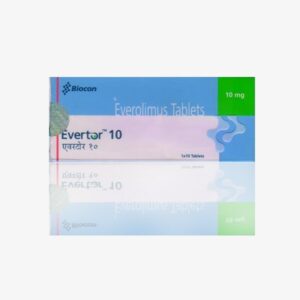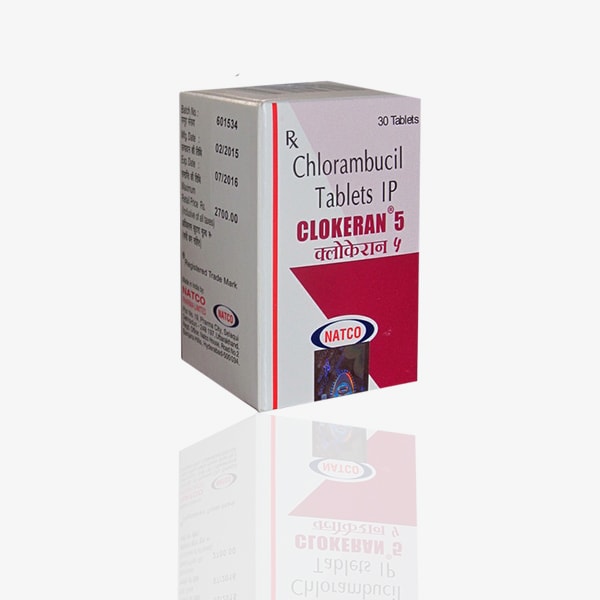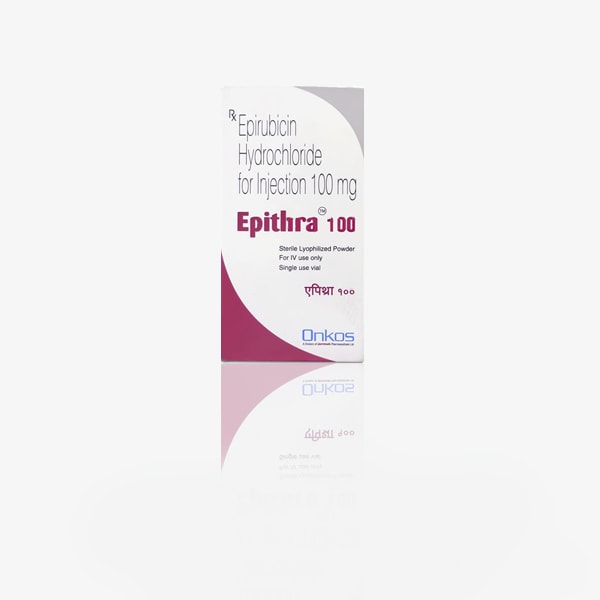

Buy Evertor : Everolimus 10 Mg Tablets Online
$198.57
Brand Name : Evertor
Composition : Everolimus
Manufactured by : Biocon Pharma Ltd.
Strength : 10 mg
Form : Tablets
Packing : Pack of 10 Tablets
Prescription Required *

Buy Evertor : Everolimus 10 Mg Tablets Online
$198.57
- Description
- Reviews (0)
Description
Introduction: Evertor, powered by the active ingredient Everolimus, represents a groundbreaking medication belonging to the class of mTOR inhibitors. This innovative drug plays a crucial role in modern medicine, offering a targeted approach in the treatment of various conditions, including certain types of cancer and specific immunological disorders. Everolimus, with its unique mechanism of action, has demonstrated efficacy and versatility in managing complex medical conditions.
Drug Class: Everolimus is classified as a mammalian target of rapamycin (mTOR) inhibitor. This class of drugs targets the mTOR pathway, a key regulator of cell growth, proliferation, and survival. By inhibiting mTOR, Everolimus intervenes in abnormal cellular processes, making it particularly effective in the treatment of various diseases, including certain cancers and immune-related disorders.
Indications: Evertor is prescribed for a range of medical conditions, making it a versatile therapeutic option. The primary indications for Everolimus include the treatment of advanced renal cell carcinoma, breast cancer, pancreatic neuroendocrine tumors, and subependymal giant cell astrocytoma associated with tuberous sclerosis complex. In addition, Everolimus is used in specific transplantation settings to prevent organ rejection.
Mechanism of Action: The key to Everolimus’s efficacy lies in its targeted interference with the mTOR pathway. mTOR, a protein kinase, plays a central role in cellular processes, including protein synthesis and cell growth. Everolimus inhibits mTOR, disrupting the signaling cascade that regulates these processes. By doing so, the drug restrains abnormal cell proliferation and survival, particularly in cancer cells and overactive immune cells. This targeted approach minimizes the impact on normal, healthy cells, reducing side effects associated with broader-acting therapies.
Dosage and Administration: The dosage of Evertor is tailored to the specific medical condition being treated, the patient’s overall health, and individual response to the drug. Everolimus is typically administered orally, usually in the form of tablets or oral solution. Patients are advised to take the medication consistently with or without food, following the prescribed schedule provided by their healthcare provider.
Healthcare professionals closely monitor patients receiving Everolimus, adjusting the dosage as needed to balance therapeutic efficacy with potential side effects. It is crucial for patients to adhere strictly to the prescribed dosage and inform their healthcare team of any challenges or concerns they may encounter during the treatment.
Effectiveness: Everolimus has demonstrated effectiveness in various clinical settings. In advanced renal cell carcinoma, Everolimus has been shown to delay disease progression and improve overall survival. In breast cancer and pancreatic neuroendocrine tumors, the drug has exhibited antitumor activity, offering a valuable treatment option for patients with limited alternatives. Additionally, in transplantation medicine, Everolimus contributes to preventing organ rejection, enhancing the long-term success of transplant procedures.
However, individual responses to Everolimus can vary, and its effectiveness depends on factors such as the specific disease being treated, the stage of the condition, and the patient’s overall health. Ongoing monitoring and collaboration between healthcare providers and patients are essential to optimize the therapeutic outcome.
Side Effects: While Everolimus is generally well-tolerated, it may cause certain side effects. Common side effects include stomatitis (mouth sores), fatigue, rash, and diarrhea. Some patients may experience changes in blood cell counts, requiring careful monitoring. Additionally, Everolimus may affect cholesterol levels and blood sugar, necessitating regular assessments and potential interventions.
In rare cases, more severe side effects may occur, such as lung or liver problems. It is crucial for patients to promptly report any unusual or persistent symptoms to their healthcare provider. The healthcare team will monitor patients closely, adjusting the treatment plan or providing supportive care as needed to manage side effects effectively.
Contraindications: Certain individuals may not be suitable candidates for Everolimus therapy. Contraindications include known hypersensitivity to Everolimus or its components. Additionally, individuals with a history of severe infections or those with impaired liver function may need careful consideration before initiating treatment.
Before prescribing Everolimus, healthcare providers conduct a thorough assessment of the patient’s medical history, current health status, and any potential contraindications. Open communication between patients and healthcare professionals is essential to ensure that Everolimus is a safe and effective treatment option for the specific medical condition.
In conclusion, Evertor (Everolimus) stands at the forefront of precision medicine, offering targeted therapy for a range of medical conditions. From inhibiting cancer cell growth to preventing organ rejection in transplantation, Everolimus showcases the potential of mTOR inhibition. As with any medication, individual responses may vary, and ongoing collaboration between healthcare providers and patients is crucial to optimize therapeutic outcomes while managing potential side effects. Always consult with a healthcare professional for personalized information and guidance regarding the use of Evertor for a specific medical condition.
Be the first to review “Buy Evertor : Everolimus 10 Mg Tablets Online” Cancel reply
Related Products
Buy Abretone : Abiraterone 250 Mg Tablets 120'S Online
Total Sales: 0
SKU: 515693
Buy Clokeran : Chlorambucil 5 Mg Tablets Online
Total Sales: 0
SKU: 858738
Buy Epithra : Epirubicin 100 Mg Injection Online
Total Sales: 0
SKU: 678193
Buy Erlonat : Erlotinib 100 Mg Tablets 30'S Online
Total Sales: 0
SKU: 456384
Buy Erlonat : Erlotinib 150 Mg Tablets 30'S Online
Total Sales: 0
SKU: 942762








Reviews
There are no reviews yet.